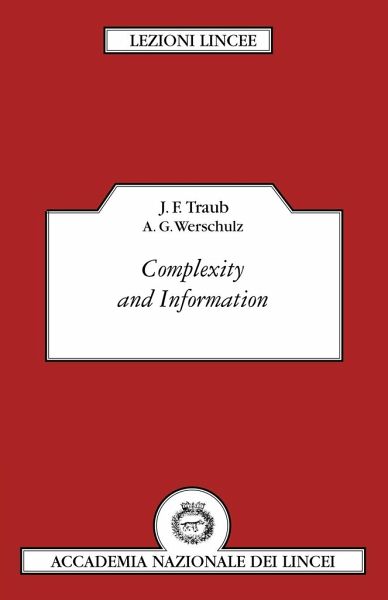
Complexity and Information
Versandkostenfrei!
Versandfertig in 1-2 Wochen
57,99 €
inkl. MwSt.

PAYBACK Punkte
29 °P sammeln!
First introductory book to subject; also illustrated with applications.


Rechnungen
Bestellstatus
Retourenschein
Storno